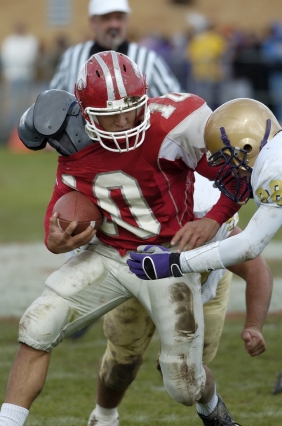When the 1996 Olympics were being held in Atlanta, I remember Muhammad Ali lighting the torch at the opening ceremonies, and how he shook from the Parkinson disease that devastated his body.
Since the 1920s, repetitive head trauma has been recognized as a cause of loss of neurological function in boxers, a condition originally called “dementia pugilistica”.
I confess; I am a fan of the gladiator sport that is American football. I enjoy cheering for “my” Green Bay Packers, and I have even been to a game at historic Lambeau field. But I was astounded (and disappointed) when the big concussion brouhaha started in the NFL a couple of years ago, and the NFL seemed surprised that head injuries were linked to long-term neurological issues (1).
The concussion discussion continues in the NFL this year with the recent decision by the NFL to enforce, more strictly, the existing rules against illegal hits that are “devastating blows” or “head shots” because of a bad weekend when multiple players were sidelined with injuries resulting from helmet-to-helmet or “devastating” hits (2).
It’s an important discussion, not because it affects the NFL and how the game of football is played, but because it gets attention and resources placed toward understanding repeat head injuries and their long-term consequences.
A recent study published in the Journal of Neuropathology and Experimental Neurology (3), takes a first step to understanding the long-term consequences of repetitive head injuries.
Continue reading “Head Shots”
